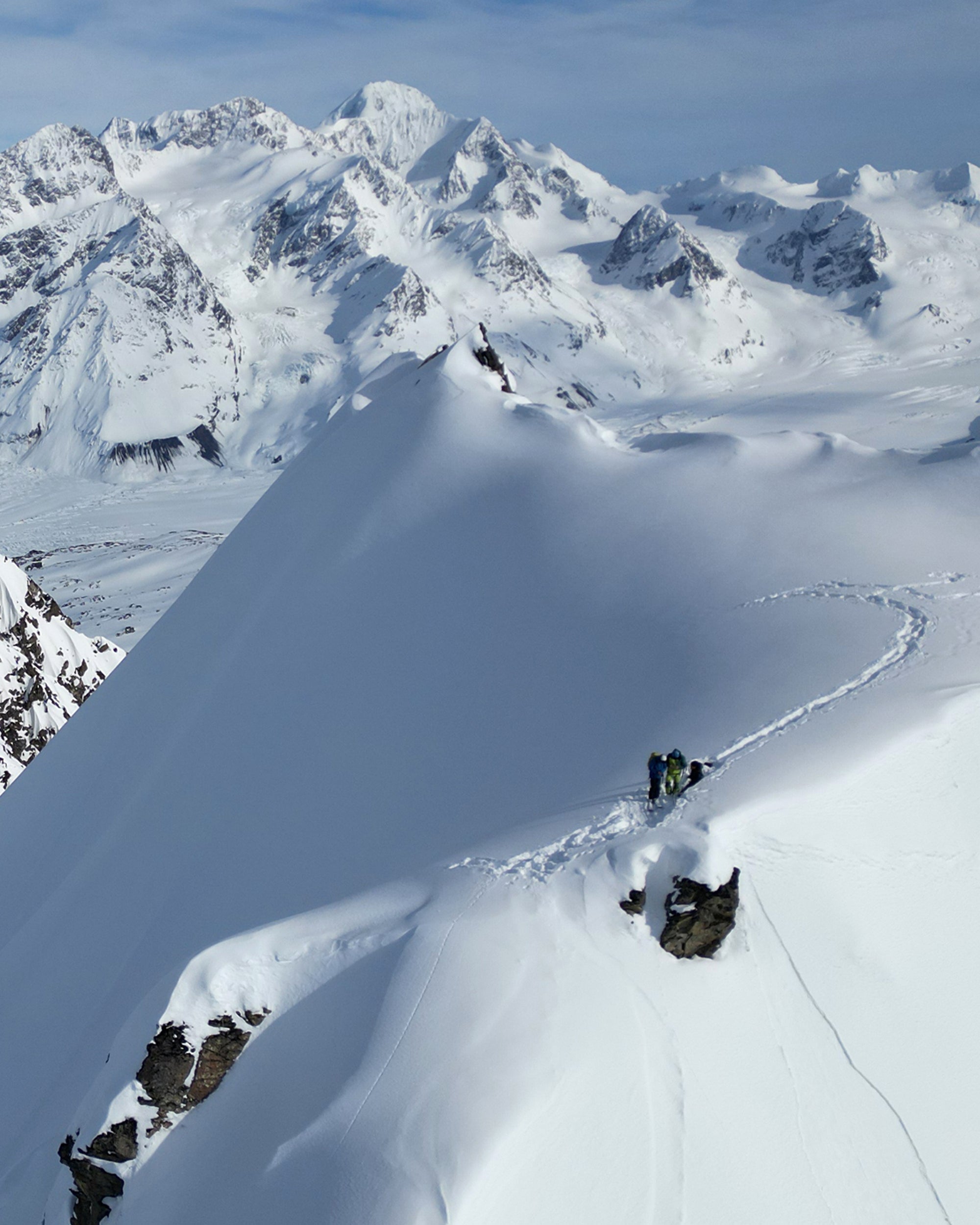
SLOPE ASCENDERS
Follow Dorian Densmore and Mya Akins for another winter season of steep Alaskan spines, backyard...
America’s public lands are the lifeblood of our outdoor culture, our economy, and the communities that thrive around them. From the granite walls of the Sierra to the deep powder of the Wasatch, from Appalachian trails to the red rock canyons of the Southwest, these wild places aren’t just beautiful, they’re essential.
They’re where we climb, ski, hike, run, and reconnect with what matters most. They’re the proving grounds for outdoor athletes and the beating heart of a $1 trillion outdoor recreation economy. For companies like Black Diamond Equipment, headquartered in Salt Lake City and rooted in the outdoors, they’re also fundamental to our business.
We design and build gear for people who live and work in these landscapes: climbers, skiers, mountaineers, and runners. Public lands are where our products are tested, our stories are born, and our employees and customers find inspiration. These places also help us recruit talent, anchor our headquarters, and fuel a community of creativity, innovation, and purpose. But that way of life is still under threat, even if the original proposal has changed.
After a ruling by the Senate Parliamentarian blocked the original proposal within the "Big, Beautiful Bill" that included a massive sell-off of public lands, Utah Senator Mike Lee introduced a revised version. This new provision would require the sale of up to 1.225 million acres of Bureau of Land Management (BLM) land over the next 3.5 years. While the update to H.R. 1 removes National Forest land from the equation and significantly reduces the acreage, it still poses a serious risk. The proposal now targets BLM lands within five miles of “population centers,” but that definition remains vague and potentially expansive. Many beloved climbing, hiking, biking, and backcountry zones could be on the chopping block.
This is a scaled-back threat, but a strong threat, nonetheless. The outcry is making a difference. Public comments, calls to senators, and widespread social pressure helped stop the original version in its tracks. But this fight isn’t over. The attempt to privatize our shared lands continues, just under a different name and with new parameters.
In 2023 alone, the U.S. outdoor recreation economy supported over 5 million jobs and generated more than $1 trillion in economic output. Bureau of Land Management properties welcomed 82 million visits, spurring over $10 billion in economic activity. These aren’t abstract numbers. They reflect real people, real livelihoods, and real communities across the country.
Public lands unite us. They create economic opportunity across sectors from gear design and guiding to conservation and tourism. They also offer something more rare and profound: common ground in a divided time. These are places where Americans from all backgrounds come together in pursuit of exploration, stewardship, and connection.
In 1991, our founder Peter Metcalf moved Black Diamond from California to Salt Lake City, drawn by the open spaces, the proximity to the mountains, and a quality of life rooted in outdoor access. That spirit still drives our company today.
Now, as one of the country’s leading outdoor brands and employers, we’re urging elected officials in Utah and across the nation to reject the sale of public lands under any name, and in any amount. These decisions must be transparent, inclusive, and focused on long-term stewardship, not short-term revenue.
Protecting our public lands should not be a partisan issue. It’s a shared American value.
Public lands are not expendable assets. They are a birthright. If we sell off these places, we lose more than terrain. We lose opportunity. We risk diminishing America's outdoor centered identity and weakening a resilient, sustainable economy. And we’ll never get that back; once lands are sold, they’re gone. Permanently.